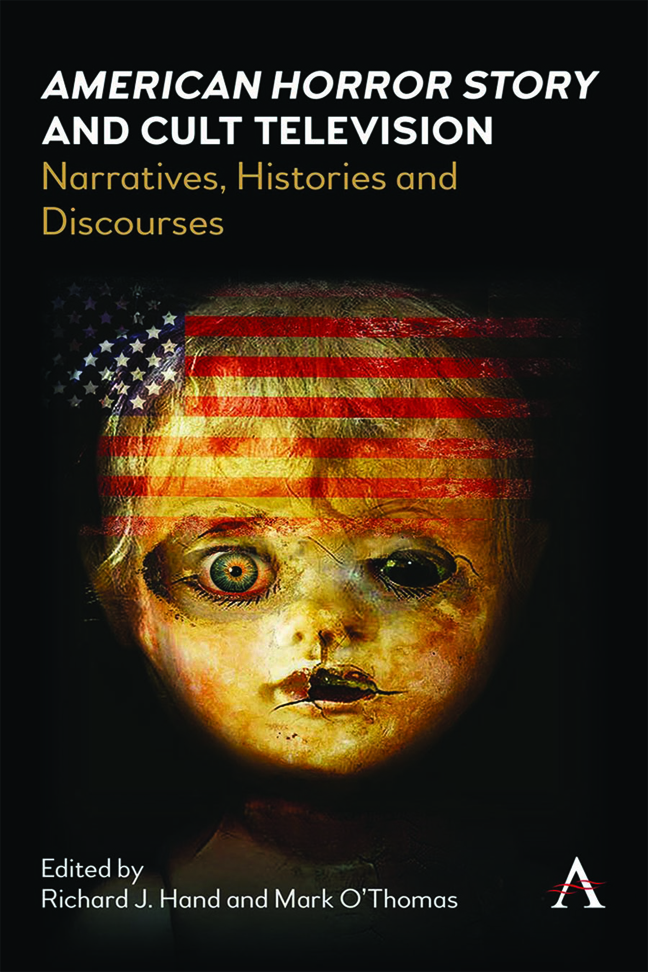Chapter 7 - Desiring Horror and Desirable Retro Slashers: ‘1984’ and the Transformation of Sociocultural Intelligibility
Published online by Cambridge University Press: 01 March 2024
Summary
To think of AHS (2011–present), Ryan Murphy and Brad Falchuk's internationally acclaimed horror anthology television series, is to think of a cultural manifestation with deep and complex political, economic and sociocultural ramifications. Accordingly, these ramifications take explicit shape in the series in terms of the conscious articulation of fear, sexuality and violence. By channeling widespread sociocultural fears and anxieties, AHS explicitly depicts contemporary issues and concerns in terms of the dynamic relationship between horror and desire. Nevertheless, as with the relational boundaries linking horror and desire, the political and sociocultural implications of this cultural manifestation reach far beyond their conscious and explicit deployment. Furthermore, horror and desire designate a complex and dynamic circuit of unconscious tensions and attractions intricately linked to sociocultural intelligibility by which the subject is constituted on individual and collective levels – that is, they designate those intrapsychic and intersubjective dynamics through which subjects come to understand themselves and their relationship to the world. In turn, this relationship between processes of subject constitution and sociocultural intelligibility cannot be detached from the profound political, economic and technological transformations of the last three-to-four decades. And it is in light of this relationship that the ninth season of Murphy and Falchuk's series, AHS: ‘1984’ (2019), becomes a critical tool for the analysis of the contemporary re-articulation of sociocultural intelligibility. With its participation in the current trend of revisiting and rememorizing the social and cultural settings of the 1980s and 1990s, this cultural manifestation provokes a contextual disruption; it slashes apart past and present issues and concerns, providing a critical entry point for the examination of the sociocultural transformation of the last forty years. But how does AHS, and this season in particular, constitute such a relevant slashing tool of sociocultural analysis? And what are the contemporary dynamics and transformations it reveals?
In this chapter, I will address these questions by, first, approaching those elements that, from its particular focus on pop culture and the slasher horror subgenre to the sociopolitical context it portrays, make ‘1984’ stand in a position that differentiates it from other seasons of AHS. Second, I will analyse this season's positioning in relation to sexuality by tackling its narrative deployment in terms of both the sociohistorical contexts it portrays and the political, economic and sociocultural ramifications that derive from its mainstream production and distribution.
- Type
- Chapter
- Information
- American Horror Story and Cult TelevisionNarratives, Histories and Discourses, pp. 111 - 128Publisher: Anthem PressPrint publication year: 2023

